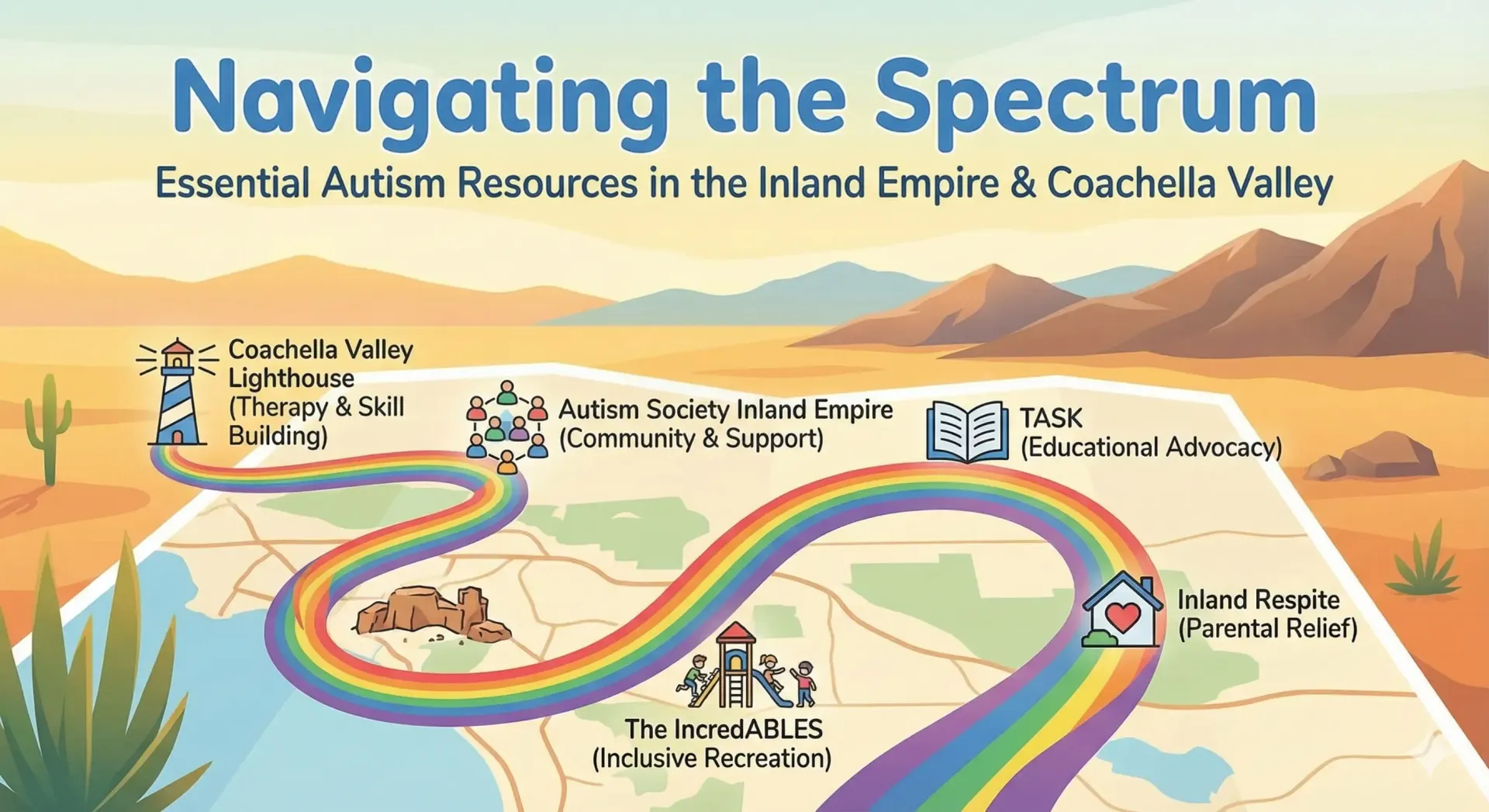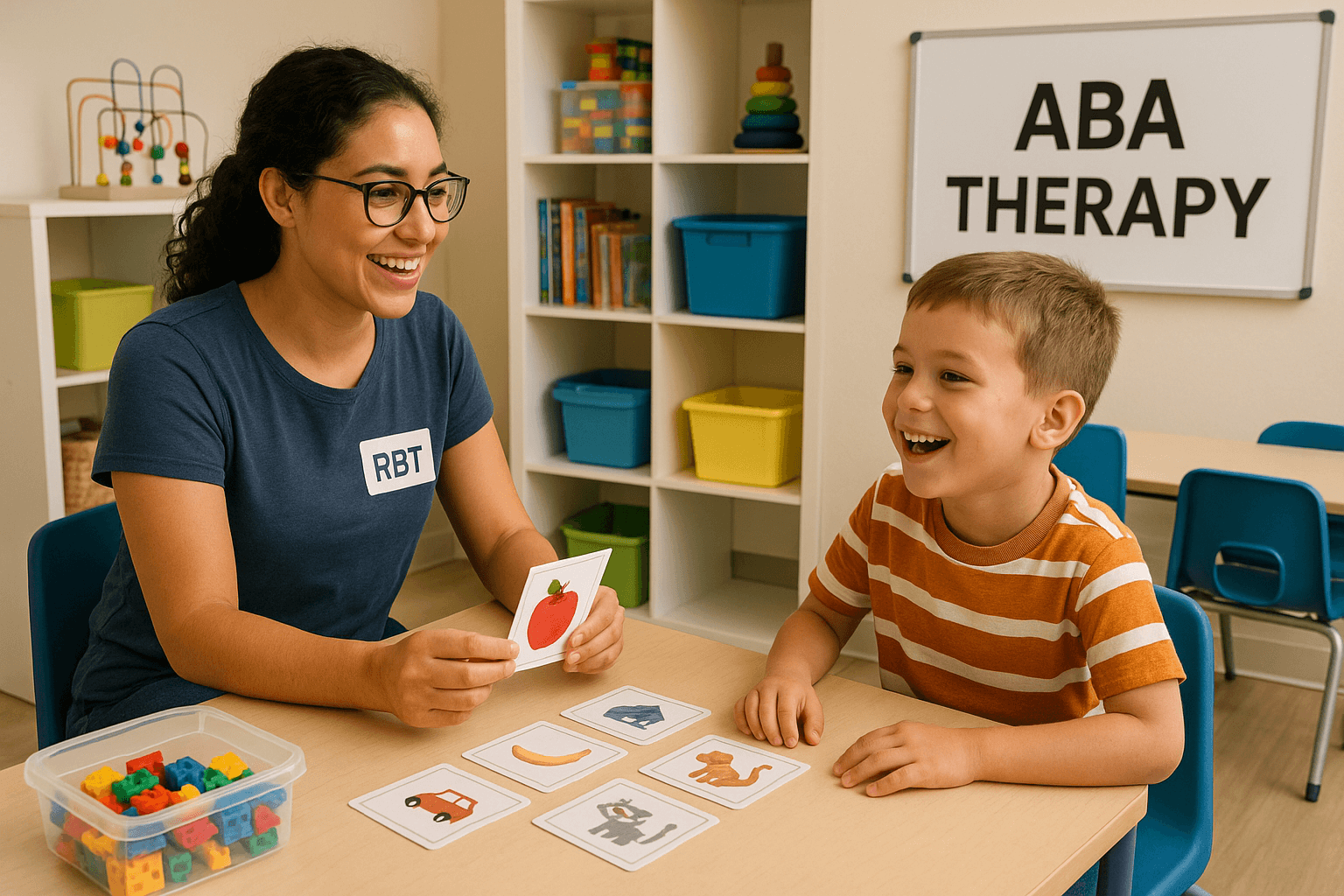ABA Therapy vs. Early Intervention | Coachella Valley
ABA Therapy vs. Early Intervention: What's Best for Your Child?
Early Intervention Services
Early intervention, also known as infant development, is designed to assist young children that have been identified as at-risk of having developmental delays, including suspected autism spectrum disorder.
These individuals may have been born prematurely, may have been flagged by a pediatrician or medical professional for not meeting milestones, or may have a medical diagnosis associated with developmental delays (i.e., Downs Syndrome, autism, intellectual delay, etc.).
Early intervention services typically consist of a variety of service options including, but not limited to, parent coaching/collaboration, occupational therapy, physical therapy, applied behavior analysis, and speech therapy.
The primary goal of these services is to close the gap between your child’s chronological age and their developmental milestones.
Early intervention services can be funded through private pay or through a government agency such as a school district or a regional center if you live in California. Services that are funded by a school district are also typically provided by that school district.
Applied Behavior Analysis
Applied behavior analysis, also known as ABA or ABA therapy, is a research-based treatment that has been shown to be effective for individuals with a variety of behavioral and developmental conditions.
It is more comprehensive than early intervention and is most commonly used to address problematic or dangerous behaviors and to improve skill deficits for individuals that have been diagnosed with autism.
ABA can be funded through private pay, insurance, or a regional center if you live in California. ABA services are typically provided by agencies.
How are the two similar and how do they differ?
- Both focus on improving skills and shrinking gaps in development
- Both require active parent participation
- Early intervention is for children under the age of 3-years-old
- ABA may be of benefit to individuals from birth through adulthood
- ABA also tends to be a more intensive and comprehensive intervention based in the science of behavior
- Early intervention is based in developmental psychology
- Early intervention focuses on achievement of milestones and learning readiness
- ABA covers achievement of milestones, learning readiness, symptoms of autism, and maladaptive behaviors
Which one should you choose for your child?
If you’re not sure where to start, that’s okay. There is a lot of information to consider and there are resources available to help you make the best decision for your child.
Questions to consider when making a decision to start early intervention or ABA:
1. Is your child’s developmental milestones delayed and are they young enough to receive early intervention?
- If the answer is yes, early intervention may be a good fit as the focus is on child development and parent coaching.
- If the answer is no, consider ABA as an intervention/treatment option.
2. Do they already have a medical diagnosis of autism or other developmental disorder and are symptoms and behaviors significantly impacting your child’s quality of life?
- If the answer is yes, applied behavior analysis may be a good fit as the focus is on treating symptoms, increasing positive interactions with family and peers, and improving quality of life for the individual and their families.
- If your child does not have a medical diagnosis but is engaging in problem behaviors or is demonstrating behaviors that cause you concern, we recommend consulting your pediatrician for a referral to ABA or contacting an ABA provider for a consultation.
- If your child has a medical diagnosis but the associated behaviors are mild and don’t impede their ability to have positive interactions with family and friends or cause them to have a poorer quality of life than their same-age-peers, they may not require intensive ABA services but still benefit from a parent collaboration or consultation model.
A key thing to keep in mind is that if you are concerned, the sooner you begin the better the results.











